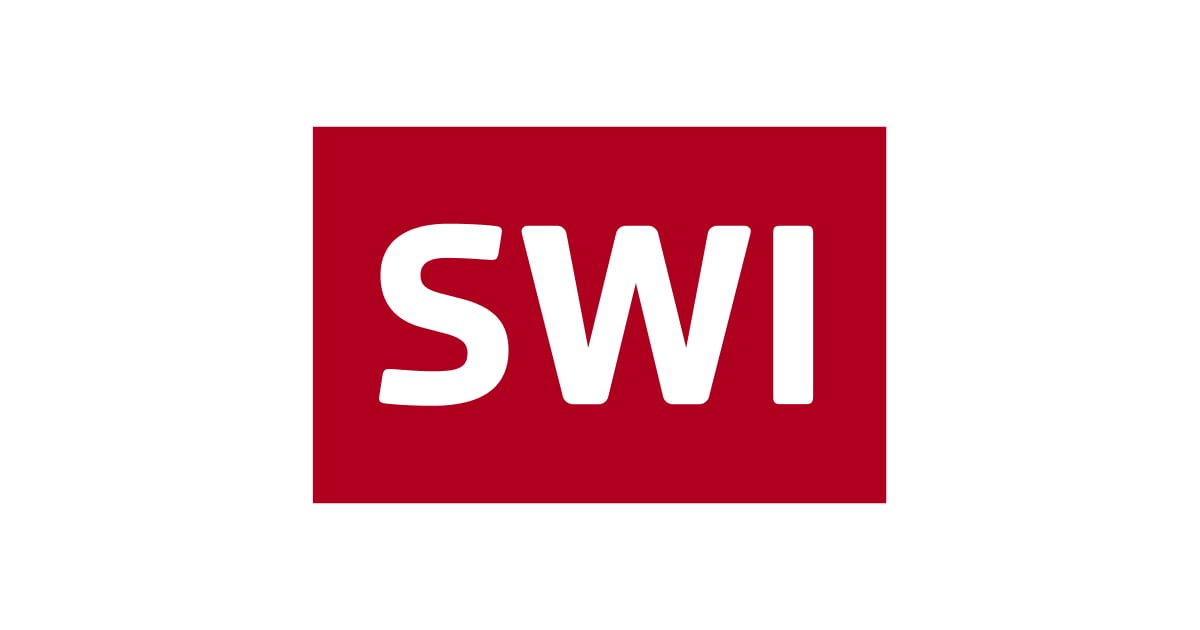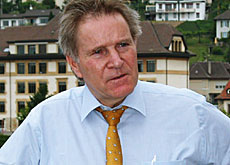Modern Olympics mirror those of the past

The International Olympic Committee is taking a trip down memory lane with its choice of Greece as the host country for the 2004 Olympic Games.
In the capital, Athens, the Swiss School of Archaeology in Greece (ESAG) is celebrating its 40th anniversary. Director Philippe Ducrey points out the similarities between the old games and the new.
“The old sporting competitions were an extension of the rivalries among Greek cities. They were an opportunity to confirm your superiority,” Ducrey says.
Using sport for political purposes, as Hitler did at the 1936 Berlin games, is not therefore a modern trend, he adds.
This nationalist rivalry encouraged the cities of ancient Greece to groom top-class athletes, who were feted as stars.
“Some athletes were trained, paid and celebrated like modern sports stars. The main thing for the athlete was that he was the best. So there certainly would have been excesses and cheating like today,” explains the Lausanne archaeologist.
No attacks
And that is not all. Ducrey puts into perspective the infamous Olympic “Truce”, which was established in ancient Greece in the ninth century.
“During these sporting games, it was forbidden to attack the athletes and the people who accompanied them. But this truce didn’t extend to everyone else,” he adds.
Ducrey points out that, like today, sports competitions were a key aspect of the culture of the time.
Indeed, there were several “Olympic Games” in ancient Greece; those dedicated to Zeus were among the most renowned, as were the games of Delphi, Nemea or Corinth.
“But practically every Greek city organised sports competitions, following the example of Eretria, an ancient city that has been researched by Swiss archaeologists,” says Ducrey.
Excavations led by the school since 1964 have brought to light two stadiums mentioned in ancient texts, and it is possible to visit the remains of a gymnasium where the athletes used to train.
Centre of learning
“It was also a centre of learning in the most diverse of disciplines: arts, philosophy and the handling of weapons of war,” notes the Eretrea guide which the Swiss school has just published.
“Physical education formed an integral part of military training,” says Ducrey – yet another characteristic which is common to both the world of today and that of ancient Greece.
In Switzerland, sport falls under the umbrella of the defence ministry; in France, it is in the hands of the education ministry.
The Greeks were also convinced that sporting activity was good for mind and body.
“The Greeks considered that health and physical fitness were a necessary requisite for intellectual activity,” says Ducrey.
One aspect of the Games which has been lost over time is their religious significance.
“The celebrations were aimed at attracting the favour of the gods,” explains Ducrey.
swissinfo, Frédéric Burnand in Geneva
In Greece, the first sports competitions took place at Olympia in 776 BC.
During the course of time, a number of Greek cities organised similar events, like the Pythian games in Delphi or the Ismith games in Corinth.
The Olympic games lasted for more than 1,000 years before being forbidden by the Roman emperor, Theodsius I.
The Swiss School of Archaeology in Greece is celebrating 40 years of research at Eretrea, a town located 50 kilometres north of Athens.
To mark the occasion, the school has published an Eretrean guide which gives a complete overview of life there in ancient times.
The official launch will take place in Athens at the “House of Switzerland” on August 4, under the patronage of Presence Switzerland.

In compliance with the JTI standards
More: SWI swissinfo.ch certified by the Journalism Trust Initiative













You can find an overview of ongoing debates with our journalists here . Please join us!
If you want to start a conversation about a topic raised in this article or want to report factual errors, email us at english@swissinfo.ch.